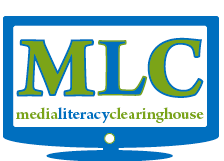Media Literacy: Teaching Critical Thinking Skills in the 21st Century
A presentation for PROJECT CITIZEN by media educator Frank W Baker
For more than four years, I have authored a column/blog post at Middleweb.com and the topic has been media literacy. That’s a subject that’s received an enormous amount of attention recently. And that attention is certainly justified considering the numbers of people (including students) who believe (and spread) disinformation, fake news, conspiracy theory and the like.
We have strong evidence that many of today’s young people are lacking in the skills of “digital evaluation.”
This article in the Wall Street Journal profiles a major Stanford University study that details the problem.
(Fortunately, there are solutions and the Stanford group has created “Civic Online Reasoning” a resource of lesson plans and assessments. I strongly urge you to check it out: it’s excellent. ) One of the strongest recommendations is something called “Lateral Reading”–a strategy to change the way we (and our students) read and question online resources.
The unfortunate fact is:
– most educators today, including those reading this now, have not had a minute of REAL media literacy training
– most state teaching standards do NOT include media literacy, so it’s not tested or taught
– most school libraries have few IF ANY books about the media (which is sad since the media is what most young people pay attention to today)
In the past four years, if you read ANY news story about fake news, then you mostly certainly saw references to the NEED for media literacy education in our schools. Unfortunately those references mischaracterize media literacy. What the writers actually meant was INFORMATION literacy or more accurately NEWS literacy. There are huge differences.
President Trump did media literacy a favor: by screaming fake news at every opportunity he actually helped put media literacy into the national conversation.
At every one of my workshops with teachers (face-t0-face and virtual), I ask “what does media literacy mean to you”? and I plan to ask it again when I present on August 3.
More than 20 years ago, I created the Media Literacy Clearinghouse website as an educational resource for teachers who wanted to know:
-what is media literacy?
-how can I incorporate it into instruction? and
-what are some recommended resources that I can use to teach it?
I have authored two recent books, so if this subject is of interest to you, you might ask your school library media specialist to acquire them. “Close Reading The Media” (Routledge, 2017) “Media Literacy in the K-12 Classroom” (revised edition, ISTE, 2016)
In the meantime, here are some links to some recent posts that I think are not only relevant but also important.
Frank W Baker
www.frankwbaker.com (Media Literacy Clearinghouse)
What Do We Want Students To Know About The Media?
What Will We Do About Internet Literacy?
Share This Page:


